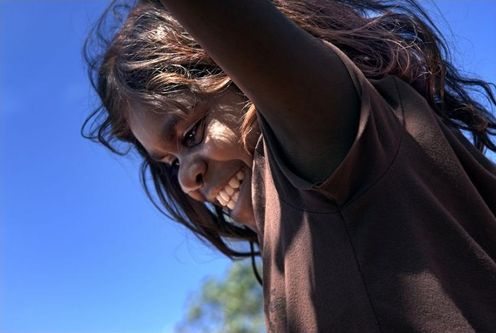
The United Nations Organisation for Economic Cooperation and Development (OECD) recently conducted an assessment of the wellbeing of people around the world. The results indicate that Canberra is a world standout on the measures of income, jobs, health, access to services, environment, education, safety, civic engagement and housing.
It seems these were the only factors taken into consideration. Respondents to this survey could rank only the nine measures that were provided to them. This means other aspects of a person’s wellbeing are ignored.
It is important is to understand the research methodology as this always affects outcomes. In the case of the OECD survey and also the Productivity Commission’s Overcoming Indigenous Disadvantage report released this week, factors that are more about the way that people think and what they believe were not included and so could not be selected. The survey’s chosen factors that affect wellbeing are those associated with modern democracies and commodity capitalism.
In 2009, I asked a group of Aboriginal people in the inner-Sydney suburb of Redfern what factors influenced their wellbeing. I included indicators such as those used by the OECD, factors raised by the world’s Indigenous people at the United Nations, and those that occurred to me as an insider researcher.
The results are dramatic and illuminating. They changed my life in that they indelibly changed my way of thinking about the directions of my research.
Factors impacting on Aboriginal wellbeing
The number one factor for the wellbeing of this group of highly urbanised Aboriginal people was “spirituality”. Of this they said:
Spirituality is a feeling, with a base in connectedness to the past, ancestors and the values that they represent – for example, respect for elders, a moral/ethical path. It is about being in an Aboriginal cultural space, experiencing community and connectedness with land and nature, including proper nutrition and shelter. Feeling good about oneself, proud of being an Aboriginal person. It is a state of being that includes knowledge, calmness, acceptance and tolerance, balance and focus, inner strength, cleansing and inner peace, feeling whole, an understanding of cultural roots and ‘deep wellbeing’.
From this it seems that for these Aboriginal people an intangible factor most affects their wellbeing. It is something you cannot see or hold; something you cannot measure.
I have come to understand that what Aboriginal people gloss as spirituality when we talk to one another is actually part of a philosophy. This is about the way that people think and understand their relationship to the world and to others. It requires no explanation; it is about knowing each other and the culture that we spring from.
The whole Redfern focus group ranked “knowing about my people’s history and culture” second in the top ten factors that influence their well-being. In summary, what they said was:
Knowing about your people’s history and culture enhances identity, gives strength and pride, a sense of belonging, it gives more grounding in life, a connection to the knowledge of ancestors and cultural activity including language, art, law/lore and dance. It allows a way of sharing, connection to land, survival, bush tucker and medicines. It also allows empowerment, for a person to move on in life in a positive way. It increases all aspects of one’s wellbeing as it enhances their life in every way – physical, emotional, spiritual, economic.
Again, this is an intangible cultural heritage factor. It tells us a great deal about the preoccupations of Aboriginal people in their day-to-day lives. The following eight factors that influence the well-being of this group of people in Redfern are also intangible.
Three factors tied for third ranking. These are: knowing family history; knowing about and exercising my rights as an Indigenous person; and being able to give to my family and friends.
Again, the ways in which these factors are defined and described tells us of cultural difference. For example, “being able to give to my family and friends” is summarised as being:
… an expression of Aboriginal cultural values and connectedness through reciprocity. It gives a feeling of satisfaction in knowing that you express your love and support of family, relations and community. It gives a sense of achievement, independence and happiness. It also means that a person is respected. It indicates a certain quality of life that money cannot buy. It is not about materialism but a mutual understanding and acceptance. It is a very important part of “making life worth living”.
Indigenous Australians may know best
These results indicate the real cultural faultlines in Australia. The Redfern Indigenous knowledge focus group results point to another way of thinking about ways of living well. The importance of “spirituality” for Aboriginal people in a settler colonial society marked by its secularism provides food for thought.
The Indigenous people of the world through the agency of instruments of the United Nations have made a strong recommendation that the concept of Indigenous wellbeing be the basis for all policy and program development in Australia.
However, there is a problem: these processes are continually being hijacked by others who may seriously want to change the situation for Aboriginal people, but who do not listen. They don’t know how to ask the right questions and have no faith in the capacity of Aboriginal people to give the right answers. They assume that Aboriginal people have to be more Western – and this in a world that is demonstrating every day the growing evidence of the failure of Western ways of dealing with the earth.
Aboriginal people are the inheritors and the custodians of the longest living human culture on earth. The factors that influence their wellbeing are those that allow them to continue in this task. Maybe the key to Aboriginal wellbeing, and therefore a solution to the problems that beset us, is as simple as programs to assist us to manage and develop our own cultural ways.
Victoria Grieves receives funding from the Australian Research Council.
